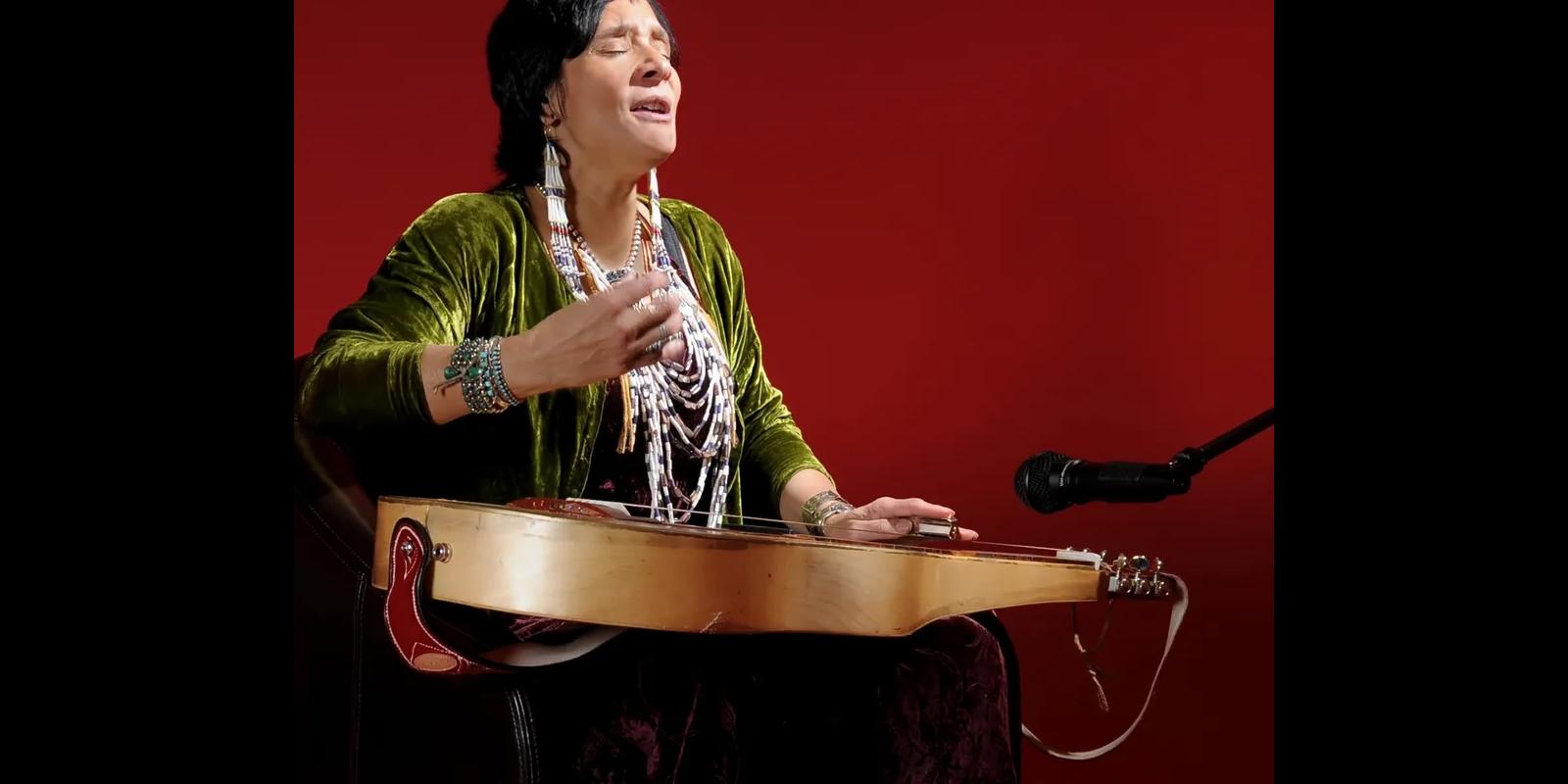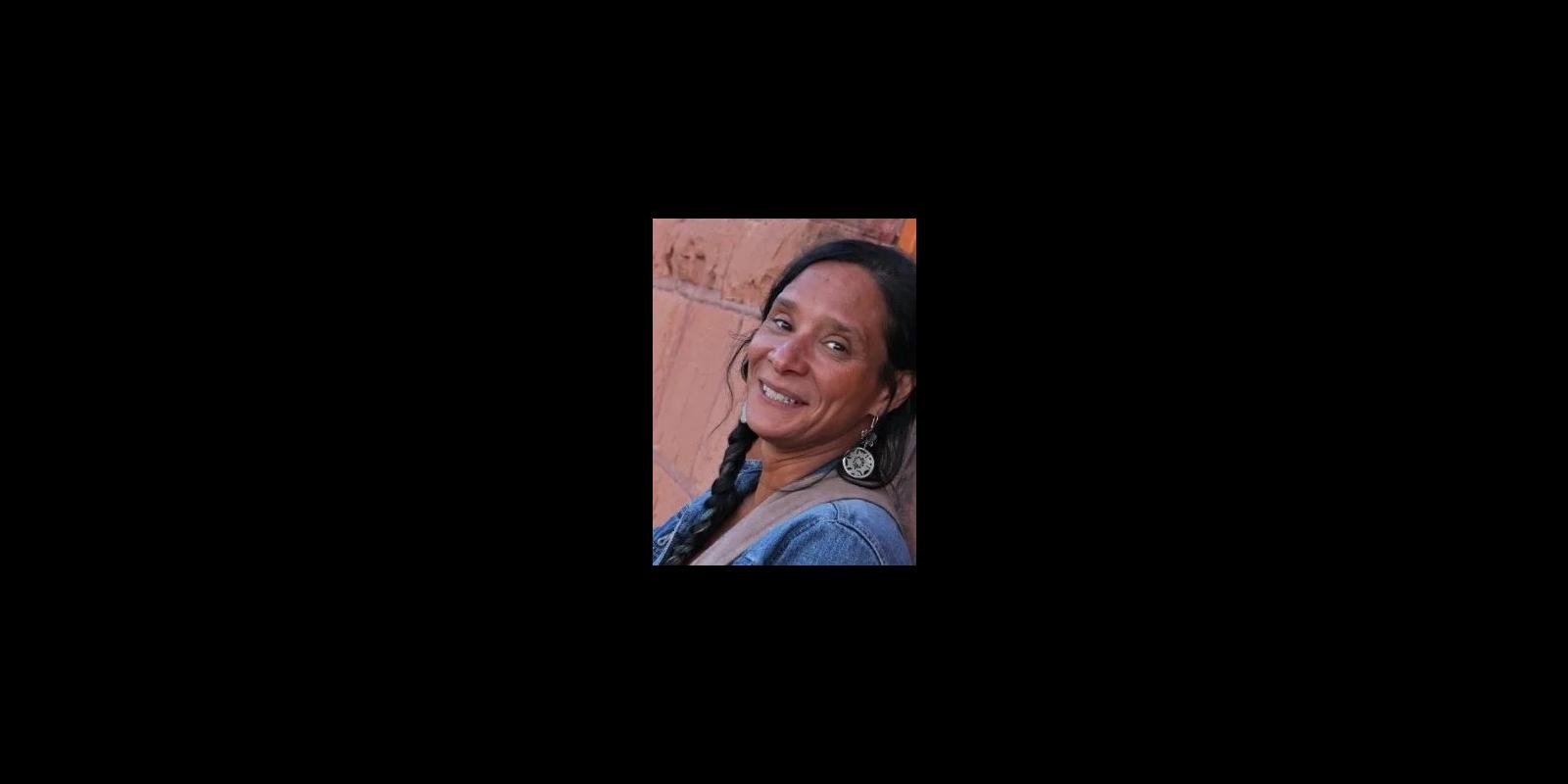https://purafe.com/
Pura Fé, whose name means "Pure Faith," was born in New York City and an heir to the Tuscarora Indian Nation. She is an artist, an activist, and much more. Her musical journey, running the gamut from folk to mainstream through an artful use of the blues, reflects the concerns of an artist who grew up in the Motown era, while citing Buffy Sainte-Marie,Charley Patton and Joni Mitchell as her true mentors. And, more widely, “traditional music from all over the world, wherever the spirit is connected to our roots.”
Pura Fé has studied and performed with The American Ballet Theatre Company, has been in several Broadway musicals and TV commercials. She has sung for The Mercer Ellington Orchestra, countless Jazz, R&B, Rock bands and has stamped her distinct vocals on many recordings, demos, jingles, music videos and movie sound tracks/trailers through out her career. She is a founding member of the internationally renowned native woman’s a capella trio, Ulali, and is recognized for creating a new genre, bringing Native contemporary music to the forefront of the mainstream music industry.
Pura Fé won a Nammy (Native American Music Award) for Best Female Artist for ‘Follow Your Hearts Desire’. She also won an L’académie Charles Cros Award (French Grammy) for Best World Album for her ‘Tuscarora Nation Blues’ album.
Pura Fé (Tuscarora/Taino) is an Indigenous activist, singer-songwriter, and storyteller known for her distinct, soulful vocals and for breathing life into several musical genres. Her work as a musician has brought her around the world to do work at festivals, benefits, in classrooms, online, and in the studio. As a Native activist and cultural leader, she has done work to combat the erasure of native culture, restore traditions, build community, fight corporate takeover of native land, and give a voice to those facing social injustice.
As the founding member of the internationally renowned Native Women’s a cappella trio Ulali, Pura Fé helped to create a movement throughout Indian Country, which not only empowered Native Women’s hand drum and harmony, but also built a bridge for Native music into the mainstream music scene. Ulali’s unique fusion of ancestral music, cultural roots, and message has left its mark. Ulali has recorded music for soundtracks, television commercials, has had platinum sales in Italy, and appeared at several events for the benefit of Indigenous Peoples and the environment.
Pura Fé’s solo career has produced six studio albums with her Native Blues and lap-steel slide guitar work. While touring Europe with Music Maker Blues Review under Dixie Frog and Nueva Onda French labels, she won Grand Prix du Disque from L'Académie Charls Cros (French Grammy) for Best World Album in 2006 for Tuscarora Nation Blues, and a Native American Music Award (NAMMY) for Best Female Artist for Follow Your Heart’s Desire in the same year.
Pura Fé and Ulali appeared in and consulted for the Rezolution Pictures Documentary RUMBLE: The Indians That Rocked The World, which won first place at the 2017 Sundance Film Festival. Pura Fé commented on her experience with the documentary, “This gave me a chance to reenact a piece of the historical birth of blues music that no one considers or hears about”. Incumbent United States Poet Laureate, Joy Harjo once said, “We are systematically being written out of everything.” To have a platform to help bring awareness to the mainstream was crucial to Pura Fé and Ulali.
Born and raised in New York City, Pura Fé was classically trained in dance and vocals. As a child, show business paid for her education by way of Broadway plays, truck and bus tours, television commercials, and jingles. She was raised by her mother, Nanice Lund, who also sang professionally, performing for Duke Ellington’s Sacred Concert Series. Pura Fé later went on to sing with the Mercer Ellington Orchestra.
Though she was a city kid, the influence of her grandparents’ mixed-race ancestry with at least eight generations of women singers, continues to be the doorway to her musical creativity. Pura Fé is the ninth generation of singers in her family, whom hail from the North Carolina Indigenous Tuscarora Deer Clan, who have black and Scotch-Irish ancestry as well. She later moved to North Carolina to connect with family from her maternal line and maintains ties with family and many Indigenous communities in the area. Her black ancestry stems from African banjo pickers from The Lee and Monk Plantations (from which world-renowned Jazz pianist Thelonius Monk descended) who married Tuscarora women during the Civil War.
Music is woven into the DNA on both sides of Pura Fé’s family. Although she did not grow up with him, her father, Juan Antonio Crescioni, was from Puerto Rico and grew up singing alongside his mother who played a cuatro, strumming out Jibaro music. Ancestry on Pura Fé’s paternal side is Taíno Indian of Puerto Rico, Corsican, and Spanish-Berber of the Canary Islands.
In her early teens, Pura Fé and her family became a part of the Urban Indian Scene through the American Indian Community House (AICH) based in NYC. AICH housed a collection of talented creators from Indigenous Nations all over North America. This is where she met what would later be the members of Ulali. With AICH, the group was able to take part in the beginnings of the United Nations Indigenous Permanent Forum. This brought the group around Indian Country, sharing their music and participating in Indigenous rights activism. Through the years, the group created a family network from all over Indian Country.
Today, Pura Fé lives in Canada and is writing a film for Rezolution Pictures. She is also working with First Nations dance and theater troops while recording a new album.

